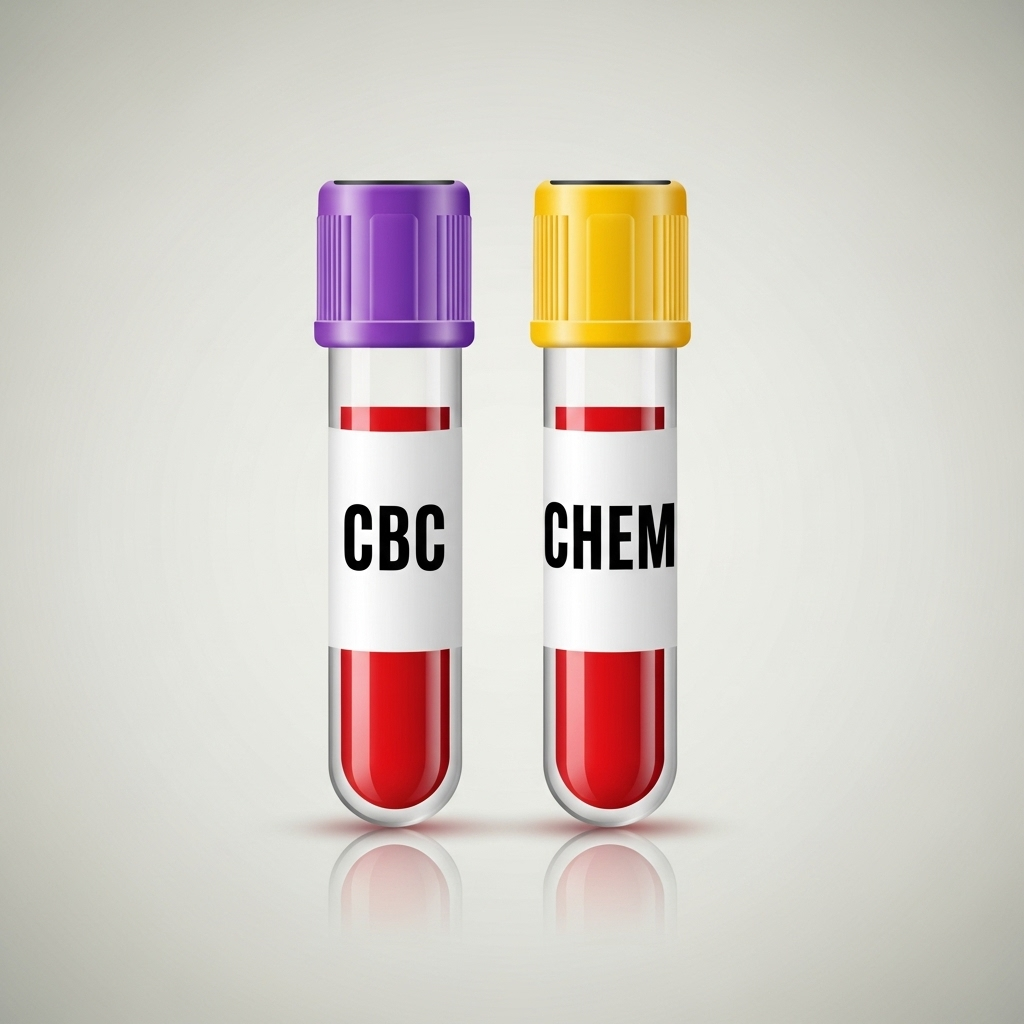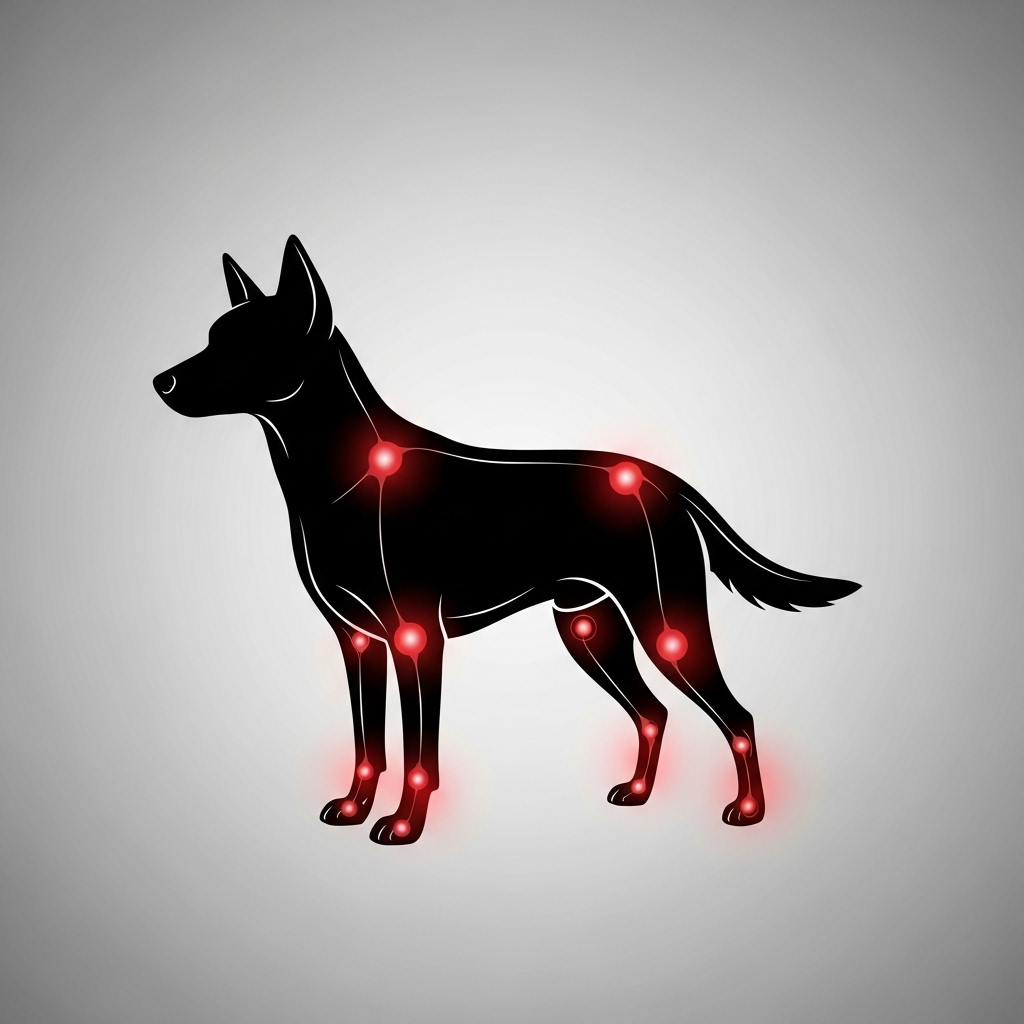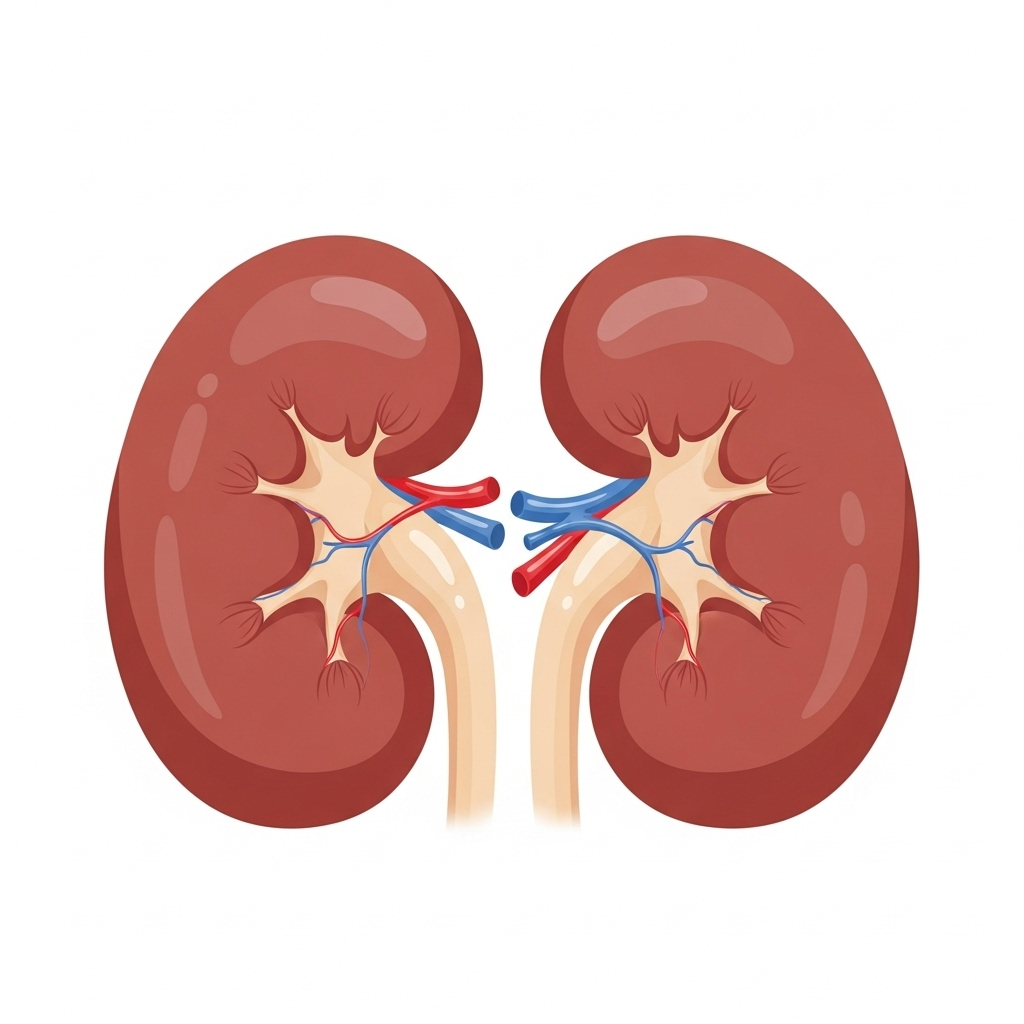Medical Disclaimer: This article is for informational purposes only and does not constitute medical advice. Always consult with your licensed veterinarian in Ottawa or your local area for any health concerns regarding your pet. As a veterinarian, my goal is to educate, but I cannot diagnose or prescribe treatment without a physical examination and a valid veterinarian-client-patient relationship.
Table of Contents
That subtle shift in your dog’s energy, the slight hesitation before jumping on the couch, or the sudden increase in thirst, these are the quiet worries that keep pet owners up at night. You know your dog better than anyone, and when something feels off, you want answers.
Key Takeaways: Understanding Modern Blood Tests for Dogs
- Go Beyond the Basics: While a Complete Blood Count (CBC) and Chemistry Panel are foundational, new tests offer a deeper look into your dog’s health. Think of them as specialised tools for early detection.
- The Big Three Advanced Tests: C-Reactive Protein (CRP) pinpoints hidden inflammation, Symmetric Dimethylarginine (SDMA) detects kidney disease months or even years earlier than previous tests, and proBNP screens for heart strain. These are crucial blood tests for dogs, especially as they age.
- Early Detection is Key: The primary benefit of these advanced blood tests for dogs is catching problems before they become severe. This often leads to more effective, less invasive, and less expensive treatment options down the road.
- Costs Vary: In Canada, routine blood tests for dogs can range from $100 to over $300, with advanced panels costing more. This investment provides invaluable information about your pet’s internal health.
- You Are Your Dog’s Best Advocate: Noticing subtle changes at home is the first step. This guide will help you understand what questions to ask your vet about the right blood tests for your dog.
Why Regular Blood Tests for Dogs Are a Cornerstone of Good Health
As a vet here in Ottawa, I can tell you that a thorough physical exam is vital. We check everything from the tip of the nose to the end of the tail. But some of the most serious health issues brew silently, completely invisible from the outside. That’s where blood tests for dogs become our most powerful tool, allowing us to see what’s happening on the inside.
Beyond the Physical Exam: What Blood Work Reveals
Think of it this way: a physical exam is like checking the exterior of a house for cracks or damage. Blood work is like having a master inspector who can check the plumbing, electrical, and foundation all at once. According to the globally trusted Merck Veterinary Manual, routine health check-ups, which include blood screening, are essential for preventative care. They establish a “normal” baseline for your specific dog, making it much easier to spot deviations later on.
These screenings can uncover a range of conditions, from dehydration and anaemia to the early stages of kidney or liver disease, often long before your dog shows any obvious signs of being unwell. This is the core value of performing regular blood tests for dogs.
My Experience: The Silent Symptoms We Uncover
I’ll never forget a 7-year-old Beagle named Cooper who came in for his annual check-up. He seemed perfectly fine, happy, good appetite, and normal energy. But because of his age, his owner and I agreed to run a senior wellness panel, which included some of these more advanced blood tests for dogs. The results were a shock: Cooper’s kidney values were already showing early signs of trouble. We would have had no idea otherwise. By catching it early, we were able to make simple dietary changes and start him on supplements. Today, Cooper is 10, and his kidney function has remained stable. This is a perfect example of why proactive blood tests for dogs are so critical.
The Foundational Two: Understanding Your Dog’s Baseline Blood Work
Also see: https://doglifeexpert.com/diagnosing-cancer-in-dogs-3-essential-steps/

Before we dive into the newer tests, it’s important to understand the two core panels that form the basis of most veterinary health profiles. These are the essential blood tests for dogs that we use every single day in practice.
The Complete Blood Count (CBC)
The CBC is a fundamental blood test that evaluates the cells circulating in your dog’s blood. It gives us a snapshot of overall health and can point toward infection, inflammation, or anaemia. It measures three main types of cells:
- Red Blood Cells (RBCs): These carry oxygen. Low numbers can indicate anaemia, while high numbers might suggest dehydration.
- White Blood Cells (WBCs): These are the immune system’s soldiers. Different types of WBCs can increase in response to bacterial infections, stress, inflammation, or allergic reactions.
- Platelets: These tiny cells are crucial for blood clotting.
The Chemistry Panel (Chem)
Often run alongside a CBC, the chemistry panel assesses organ function and metabolic health. It measures various substances in the blood, like proteins, enzymes, and electrolytes. This panel is one of the most important blood tests for dogs when evaluating the health of major organs, such as the:
- Kidneys: We look at values like BUN (Blood Urea Nitrogen) and Creatinine.
- Liver: Key enzymes like ALT, ALP, and GGT can indicate liver cell injury or stress.
- Pancreas: Amylase and lipase levels can sometimes point to pancreatitis.
- Blood Sugar (Glucose): Essential for screening for diabetes.
As outlined in veterinary textbooks like the Saunders Manual of Small Animal Practice, interpreting these panels together gives us a comprehensive picture of a dog’s health status.
The Game-Changers: 3 Advanced Blood Tests for Dogs Explained
While the CBC and Chem panels are excellent, veterinary medicine is always evolving. We now have more sensitive tests that can detect disease much earlier. Think of these as the next generation of blood tests for dogs.
C-Reactive Protein (CRP): The Inflammation Indicator

One of the most useful newer blood tests for dogs is the C-Reactive Protein, or CRP, test. CRP is a substance produced by the liver that spikes dramatically in response to inflammation anywhere in the body. While a high white blood cell count can suggest inflammation, CRP is often a much more sensitive and faster indicator.
I had a case with a young Golden Retriever who was just “not doing right.” He was lethargic and had a shifting leg lameness, but his basic blood tests for dogs were frustratingly normal. His CRP, however, was through the roof. This result prompted us to take a closer look at his joints, where we ultimately diagnosed him with an immune-mediated polyarthritis. As a review in the Veterinary Clinics of North America: Small Animal Practice highlights, CRP levels can rise within 24 hours of tissue injury and are incredibly useful for both diagnosis and monitoring treatment response for inflammatory conditions.
Symmetric Dimethylarginine (SDMA): The Early Kidney Disease Detective

This is, without a doubt, one of the biggest breakthroughs in canine medicine in the last decade. The SDMA test is a biomarker for kidney function that elevates much sooner than traditional markers like BUN and creatinine.
For years, we could only diagnose kidney disease after about 75% of kidney function was already lost. The SDMA test changes that. Research published in The Veterinary Journal has shown that SDMA can detect kidney disease when as little as 25-40% of function is lost. This gives us a crucial head start. The Merck Veterinary Manual’s section on diagnosing urinary system disorders reinforces how vital early detection is for managing conditions like chronic kidney disease. Adding an SDMA screen to routine blood tests for dogs over the age of six is something I strongly recommend.
ProBNP: A Look Inside Your Dog’s Heart Health
The proBNP test is a blood test for dogs that helps us screen for heart disease. When the heart muscle is stretched or overworked, it releases a protein called NT-proBNP. Elevated levels can be a sign of underlying cardiac stress or disease, even in dogs that have no murmur or other outward symptoms. This is particularly useful for certain breeds that are genetically predisposed to heart conditions, like Dobermans, Boxers, and Cavalier King Charles Spaniels. It doesn’t replace the need for diagnostics like an echocardiogram (an ultrasound of the heart), but it’s an excellent screening tool to decide which dogs need a closer look.
What’s the Cost? A Realistic Look at Blood Test Pricing in Canada
Understanding the potential costs is an important part of responsible pet ownership. Prices for blood tests for dogs can vary depending on your location in Canada, your specific clinic, and whether the samples are run in-house or sent to an external laboratory. Here’s a general idea of what you might expect to pay:
| Test/Panel | Estimated Cost Range (CAD) | What It Typically Includes |
| Routine Wellness Panel | $100 – $250 | Includes a Complete Blood Count (CBC) and a basic Chemistry Panel. |
| Comprehensive/Senior Panel | $200 – $400+ | Includes CBC, full Chemistry Panel, Thyroid levels, Urinalysis, and often an SDMA test. |
| Individual Advanced Tests | $80 – $150 (per test) | Cost to add a single test like CRP or proBNP to another panel. |
| Pre-Anesthetic Panel | $90 – $200 | A focused panel to ensure a dog is healthy enough for anaesthesia. |
These are estimates and can vary. Always ask your veterinarian for a specific quote.
While these costs can seem significant, viewing them as an investment in your dog’s long-term health is key. The cost of managing an advanced disease is almost always higher than the cost of early screening blood tests for dogs.
Your 5-Minute “When to Call the Vet” At-Home Checklist

You are the first line of defence for your dog’s health. If you notice any of the following subtle signs, it’s a good reason to call your vet and discuss whether blood tests for dogs might be needed:
- Changes in Thirst or Urination: Is the water bowl suddenly always empty? Are you having to let your dog out more frequently?
- Shifts in Appetite or Weight: Unexplained weight loss is a significant red flag. A sudden decrease or increase in appetite is also a concern.
- Lethargy or Low Energy: Is your dog less interested in walks, playing, or interacting than usual?
- Bad Breath (Halitosis): While often linked to dental issues, a sudden, foul odour can sometimes be a sign of underlying kidney or metabolic problems.
- Vomiting or Diarrhoea: If it persists for more than 24 hours or is accompanied by other signs, it warrants a call.
- Behavioural Changes: Hiding, sudden aggression, or appearing ‘out of it’ can all be signs of pain or illness.
Frequently Asked Questions About Blood Tests for Dogs
How often should my dog get blood tests?
For young, healthy adult dogs, a baseline panel every 1-2 years is a good idea. For senior dogs (typically over 7-8 years old), annual or even semi-annual blood tests for dogs are recommended to catch age-related issues early.
Does my dog need to fast before a blood test?
Yes, in most cases. A 12-hour fast (no food, water is okay) is usually recommended. A recent meal can affect certain values on the chemistry panel, particularly glucose and triglycerides, which could lead to a misinterpretation of the results of these important blood tests for dogs.
What does it mean if my dog’s blood test results are abnormal?
An abnormal result is not a diagnosis in itself. It’s a clue. It points us in the right direction. If a value is outside the normal range, your veterinarian will interpret it in the context of your dog’s overall health, physical exam findings, and may recommend further diagnostics.
Are these new blood tests for dogs expensive?
While advanced tests like SDMA and CRP add to the cost of a standard panel, their ability to provide early and specific information is invaluable. Many Canadian vet clinics and reference labs are now bundling these into senior or comprehensive wellness profiles, making them more affordable than ordering them individually.[10]
A Final Word of Reassurance
Navigating your dog’s health can feel overwhelming, especially when faced with new terminology and tests. But remember, these advancements in blood tests for dogs are here to help us be better partners in their care. They are powerful, proactive tools that replace uncertainty with information. By working with your veterinarian and staying observant at home, you can give your dog the very best chance at a long, healthy, and happy life by your side. These modern blood tests for dogs empower us to move from simply reacting to illness to actively preserving wellness.





Pingback: Fecal PCR Test for Dogs: 5 Crucial Things You Need to Know - Dog Life Expert